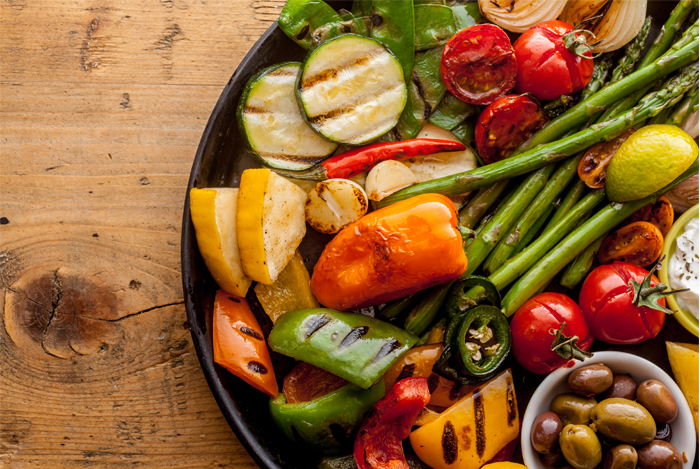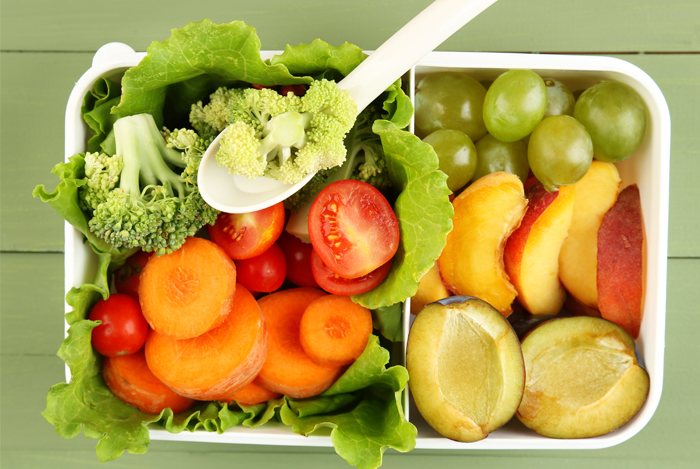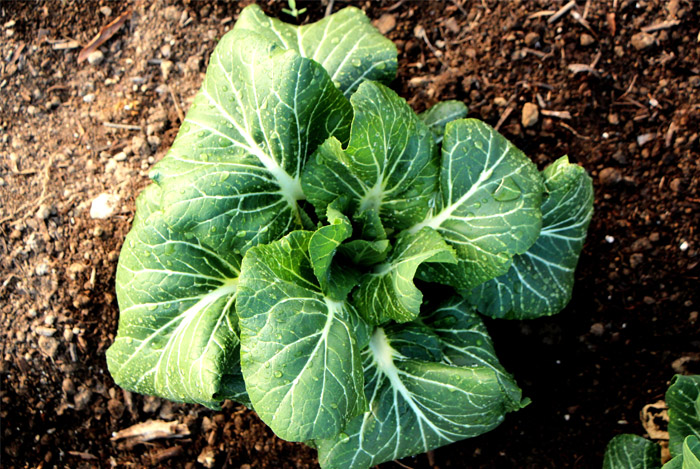A whole foods plant-based diet is now considered to be the healthiest way you can eat not only for yourself but also for the planet and your budget.
But many people still don’t understand what plant-based diets are, what they’re all about, and how easy it is to go about incorporating them into a daily routine.
For example, we all know we should eat more fruits and vegetables, but beyond that, people tend to become confused about how to simplify plant-based nutrition.
If this is you or you’re looking to understand the benefits that a whole foods plant-based diet can have on your health, then check out the details of what a whole foods plant-based diet is and the amazing benefits it can provide for you below!
What is a Whole Foods Plant-Based Diet?

You probably know that eating a whole foods plant-based diets means that you’ll be eating more plants, but beyond that maybe you’re confused.
How much? Will you be living off fruits and vegetables alone? Do you have to eat fake meat?
Don’t worry, it’s much easier than you think to eat a whole foods plant-based diet and can make eating and living so simple!
The basic foods that are included in a whole foods plant-based diet are:
- Fruits
- Vegetables
- Leafy Greens
- Whole Grains
- Legumes (Beans, Peas, Lentils)
- Nuts and Seeds (and their butters)
- Small amounts of non-dairy alternative items like almond milk
What isn’t included?
In short, animal products, but plant-based diets also eliminate sugar, oil, and refined grains because the purpose of the diet is to eat whole plant foods, not refined ones that have been linked to health issues like obesity, heart disease, and Type 2 diabetes.
A plant-based diet is full of options! Just look at how many different foods you can eat within each of the approved foods listed above. There’s over 20 different fruits and vegetables right now at your supermarket along with at least 10 different types of whole grains to try.
If you’re worried about getting enough nutrients such as protein, don’t worry. You’ll be getting plenty through the foods above and below you’ll find some ways to prepare a proper, plant-based plate.
First, though, let’s take a look at the top 5 benefits of a whole foods plant-based diet.
The Top 5 Benefits of Eating a Whole Foods Plant-Based Diet
1. Blood Sugar and Blood Pressure Control

Plant-based diets have been shown to prevent and treat Type 2 diabetes because of their beneficial effects on blood sugar levels and blood pressure.
They also treat hypertension and help keep cholesterol levels within healthy range when administered appropriately (see below).
2. They Can Prevent America’s #1 Killer

America’s #1 cause of death the last decade has been heart disease and guess what is the only diet that has been shown to not only treat heart disease but even reverse it? A whole foods plant-based diet!
People who on average get 8-9 servings of fruits and vegetables a day have been shown to have a 30% less chance of developing heart disease and dying from a heart attack or stroke.
By eating a plant-based diet, you’re avoiding the major triggers such as red meat, saturated fats, and high amounts of processed foods, sugar, alcohol, smoking, and high-cholesterol-rich foods.
3. Weight Loss

Plants are more filling and lower in calories than animal-based foods.
They’re rich in fiber, water, vitamins, minerals, amino acids (protein), and antioxidants that are crucial for weight loss.
They’re also anti-inflammatory which is important for weight loss and often overlooked.
It’s easy to get full on a plant-based diet, have more energy, and maintain your weight when you’re eating a plant strong diet rich in foods from the earth. A day’s worth of bacon, eggs, hamburgers, steak and chicken simply won’t give you the same results.
4. Better for the Planet and People Everywhere

Aside from health, the environmental benefits of eating a plant-based diet simply can’t be left out. And if you think you don’t care about the environment, you might want to give the idea of eating more sustainably a second thought.
Studies have shown plant-based diets are drastically better for the environment by reducing greenhouse gas emissions, water supply for food production, and eliminate the exposure to toxic wastes produced by animals.
Plant-based diets could also provide more food for people in third world countries suffering from hunger by giving the grains grown to feed animals to people in countries that need them to survive.
5. Easy and Affordable

Plant-based diets are also easy and affordable.
When you’re eating fruits, vegetables, whole grains, legumes ( beans, lentils, peas), small amounts of nuts and seeds, and eliminating most processed foods higher in costs per serving, you’re also reducing your grocery bill as well as how much it costs to get foods to the store for you to buy.
This ends up reducing the overall total price of the food and can even help benefit farmers growing the food to ensure they are able to afford to maintain their crops.
In short, when you invest in your health by eating a whole foods plant-based diet, everyone benefits!
Nutrient Concerns:
Vitamin B12

All well-respected doctors who specialize in plant-based nutrition recommend that you don’t worry about nutrient concerns on a balanced whole foods plant-based diet with the exception of Vitamin B12 which everyone should be taking.
VItamin B12 doesn’t come from animals or plants, but it’s a bacteria that we eat through our food we need for optimal health.
Our soils have been depleted and diminished with chemicals, pesticides, and fertilizers and the way animals are produced now puts us at risk for taking in toxic bacteria from wastes that we simply don’t need. So take a supplement and consider yourself safe!
Protein

In terms of protein, you actually don’t need that much to get enough.
Protein is found abundantly in all plant foods, especially whole grains and legumes. While protein does help maintain muscle mass, you can’t live on it alone.
The body’s prime source of fuel for energy and health are carbohydrates from plants (vegetables, greens, fruits, whole grains, legumes, nuts, seeds). These foods also promote optimal digestion, healthy muscle mass, a healthy heart, and they ensure a long and healthy life.
Carbohydrates from whole plants also shouldn’t be confused with those linked to poor health such as bagels, pasta, and refined bread products.
Iron and Calcium
Iron, calcium, and even protein are all found in plants and the cool part is that your body can use just what it needs from these foods without taking in too much from concentrated sources (such as animal products).
High-protein diets and high-fat diets rich in animal products have been linked to every type of major disease from cancer to Type 2 diabetes to heart disease, hypertension, and more.
How to Build a Plant-Based Plate:

The way to build a plant-based plate is to split your plate up into 4 servings of:
- Fruit (1 serving)
- Leafy greens and Vegetables (2)
- Legumes (1 serving) or Nuts and Seeds (1 ounce serving)
- Whole Grains (1 serving)
From there, you can build out your meals into multiple ways. For instance, you could make a soup with whole grains, legumes, and some veggies and have some fruit for dessert.
Make a salad with the ingredients, make a cooked entrée with the fruit for dessert, or take that same ratio and turn it into a smoothie by using a banana or some berries with some spinach, sprouted plant-based protein made of legumes and grains, and add your favorite spices or raw cacao (which is made from the cacao bean!).
Or, if you’re not in the mood for legumes, have some oatmeal with berries and flax seeds or almonds and raisins. It’s much easier than you think!
Whole Foods Plant-Based Diet Resources and Tips:

- There are endless resources online and in health stores that you can take advantage of to learn more about plant-based nutrition.
- Here’s a free shopping list that you can even print out to take to the store with you to make shopping a little easier, and there are multiple websites dedicated to sharing free plant-based recipes, such as Forks Over Knives.
- You can also check out multiple websites online dedicated to sharing medical and health information on plant-based nutrition and even find out science-based information from websites such as NutritionFacts.org and PCRM.org
- Start by making it your goal to eat a plant-based breakfast every day of the week. Then move onto lunch when you feel ready. Then when you feel like you’re ready to take the plunge, move onto dinner!
- Revamp your pantry to be more plant-based and get rid of the foods that you know don’t make you feel so good such as chips, cookies, meat, dairy, and stay away from fast food. Don’t look at it as what you’re giving up but think of it as what you’re giving to yourself instead.
Remember, you don’t have to do everything at once, but do your best to put in some effort to see how much of a difference it can make for you.
Or, if you’re ready to make the plunge, then go ahead and try a 100% plant-based diet starting this week.
Staying motivated and informed about the benefits of a whole foods plant-based diet will go a long way, and you might just save more lives than you’ll ever know, including improving and extending your own.
For more help on how to eat fewer animal products, check out these tips on getting enough protein without meat, eggs, or dairy!
The post The Amazing Whole Foods Plant-Based Diet appeared first on Nutrition Secrets.
http://www.nutritionsecrets.com/the-amazing-whole-foods-plant-based-diet/
No comments:
Post a Comment